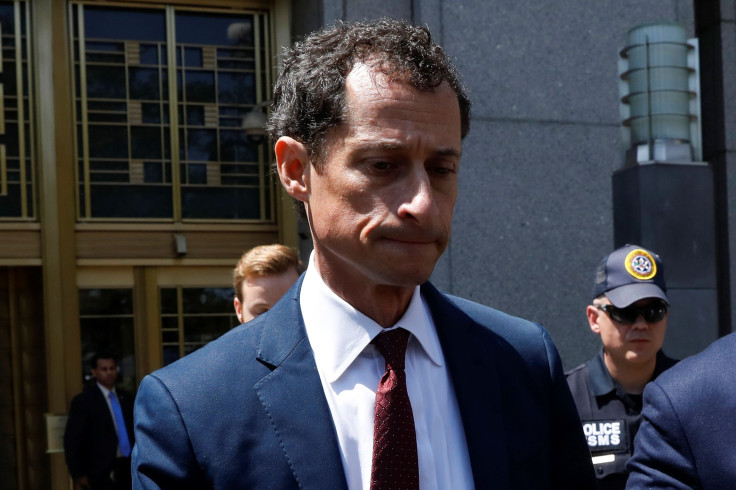Before Anthony Weiner, Other Political Sex Scandals Of The US

Former U.S. Congressman Anthony Weiner, whose sexting scandal ended his political career and involved him in an FBI investigation, wept Friday as he pleaded guilty. He confessed to engaging in obscene communications with a 15-year-old girl in North Carolina last year, reports said.
The plea agreement ended the federal investigation into a series of sexually explicit pictures and messages Weiner sent to the teenager. Federal prosecutors said in the plea agreement a sentence of 21 to 27 months would be “fair and appropriate.” Weiner is to be sentenced Sept. 8 in a Federal District Court in Manhattan.
The ruling also sealed his once-promising career in Congress which was ended by his habit of using social media and sending explicit images to women, the New York Times reported. The scandal also took on his marriage. Weiner's estranged wife, Huma Abedin, a top aide to Hillary Clinton, filed for divorce Friday in New York, two people familiar with the matter, said.
Huma Abedin has filed for divorce from Anthony Weiner, a move she made prior to his guilty plea, a source says https://t.co/Nl3edQPMxf pic.twitter.com/o1exhgowMh
— CNN (@CNN) May 19, 2017
Read: Timeline Of Anthony Weiner's Sexting Scandal
However, this is not the nation's first political scandal. There have seen several other political sex scandals in the past. Here are a few of such politicians who were accused of sexually inappropriate behavior.
In 2009, Mark Sanford, who was the South Carolina governor, disappeared for a week, leaving behind rumors of why he did so. Initial excuses for his absence suggested he was hiking along the Appalachian Trail. But when a reporter saw Sanford at an airport in Atlanta, the governor revealed he had been in Buenos Aires.
It turned out he was in Buenos Aires continuing an affair with an Argentinean woman. He admitted he "crossed the lines" with several other women during the 20 years of his marriage. He resigned as chairman of the Republican Governors Association but completed his term as governor, the Telegraph reported.
In 2008, Governor of New York state, Eliot Spitzer, was caught on a federal wire trap arranging to meet with a high-priced prostitute at a Washington hotel in February, the New York Times reported citing a law enforcement official and a person briefed on the investigation.
On March 10, Spitzer made a brief public appearance during which he said: "I have acted in a way that violates my obligation to my family and violates my or any sense of right or wrong...I apologize first and most importantly to my family. I apologize to the public to whom I promised better.”
He soon announced his resignation, becoming the first New York governor to leave office amid a scandal in nearly a century, according to the Times.
In 2007, Sen. Larry Craig of Idaho was apprehended in June by a plainclothes police officer investigating complaints of Craig's lewd behavior at Minneapolis in the men's room at St. Paul International Airport. Craig had denied any inappropriate conduct in a statement and then said he regretted his guilty plea, CNN reported.
"At the time of this incident, I complained to the police that they were misconstruing my actions. I was not involved in any inappropriate conduct," he said. "I should have had the advice of counsel in resolving this matter. In hindsight, I should not have pled guilty. I was trying to handle this matter myself quickly and expeditiously." In September, Craig resigned over the incident.
In September 2006, six term Rep. Mark Foley from Florida, resigned amid reports he had sent sexually explicit messages online to at least one underage male former page, the Washington Post had reported. Foley had said in a three-sentence letter of resignation: "I am deeply sorry and I apologize for letting down my family and the people of Florida I have had the privilege to represent."
This case drew additional attention as Foley had been co-chairman of the Missing and Exploited Children's Caucus and had sponsored the Adam Walsh Child Safety and Protection Act of 2006, intending to crack down on online predators and child pornography.
© Copyright IBTimes 2024. All rights reserved.












